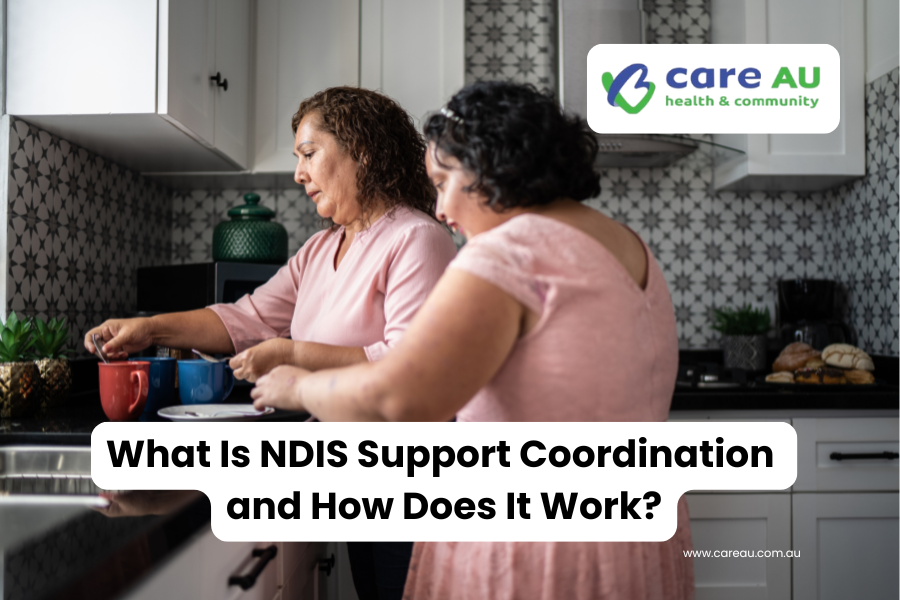Table of Contents
What Is NDIS Support Coordination and How Does It Work?
Understanding NDIS Support Coordination
The Role of a Support Coordinator
So, what does a support coordinator do? A disability support coordinator plays several roles:
- Explaining your plan – breaking down funding categories and clarifying what you can use them for.
- Connecting you with services – finding providers for therapy, personal care, employment, or community activities.
- Building your skills – teaching you how to manage your supports independently over time.
- Problem-solving – assistance in case of coming difficulties with the providers or services.
- Monitoring progress – checking on your progress i.e. are your supports keeping you on track towards achieving your goals and making any necessary changes.
Levels of NDIS Support Coordination
Benefits of NDIS Support Coordination
- Less stress – The process of the NDIS and how to go about it can be daunting, but with support coordination, it makes it easier.
- Better use of funding – spending each dollar to cover the services that really assist your goals.
- Skill building – helping participants become more confident in managing their support over time.
- Access to the right services – from therapy to community activities, NDIS support coordinators connect you with what you need.
- Crisis support – specialist support coordination provides extra help for people with more complex situations.
How to Access NDIS Support Coordination
Not every participant automatically receives NDIS support coordination services, as this support depends on individual needs and goals. To access it, the first step is to review your NDIS plan. Support coordination must be listed as a funded support, otherwise you’ll need to request it during your planning meeting.
Choosing the Right Support Coordinator
- Experience – does the provider have experience with your type of disability?
- Local knowledge – are they connected with services in your area?
- Flexibility – can they adjust support as your needs change?
- Approach – do they listen to your goals and preferences?
The best support coordinators focus on empowering participants, not just managing paperwork.
Check Out Blog – NDIS Support Coordinator Roles and Responsibilities Explained
Conclusion
NDIS Support Coordination is more than a service. It is a partnership that helps people use their plan better and achieve their goals. The NDIS is navigated with ease, not stressful, and more helpful in everyday life with the appropriate assistance at the basic support connection and also with the help of specialist support coordination.
FAQs About NDIS Support Coordination
What is NDIS support coordination?
What is NDIS support coordination?
Is support coordination NDIS available to everyone?
What is specialist support coordination?
What is support coordination in simple terms?
Need help getting started? Contact Care Au today. We’re happy to guide you through the process.

